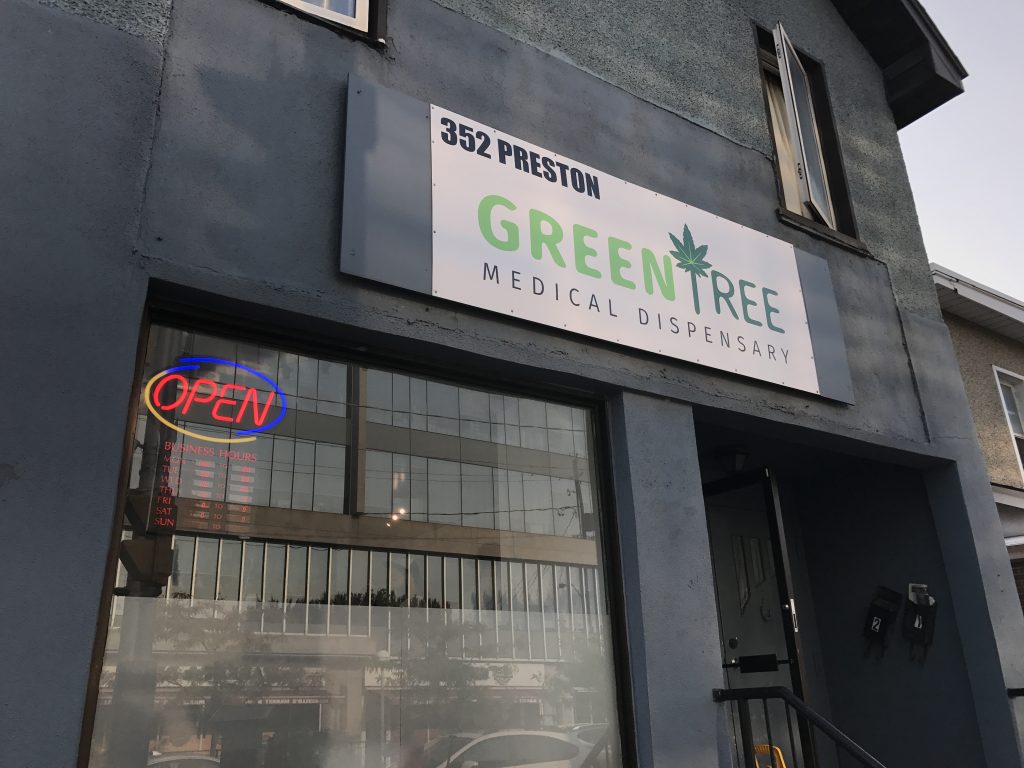New pot plan is a buzzkill, says petition
By Lauren Hicks
Unlicensed cannabis dispensaries across Ottawa are circulating a petition addressed to provincial Attorney General Yasir Naqvi, the MPP for Ottawa Centre, in a last-ditch attempt to keep their doors open.
Recreational marijuana is currently illegal in Canada, although the federal government has said it will loosen the laws by July 2018. In preparation, the provincial government said earlier this month that recreational pot will only be sold in Ontario through stores run by the provincial Liquor Control Board, and that all other “pot shops” will be shut down in the next 12 months.
All current storefront dispensaries are not licensed by Health Canada and are considered to be operating illegally. Many have been raided by police, but some have remained open as policymakers decide how to implement a provincial-level recreational market for weed.
The petition criticizes Ontario’s plan.
“This government has knowingly and willingly put forth a proposed plan of action which fails each citizen that it was designed to protect,” reads the petition, created by Cannabis Culture, a dispensary chain with a location on Bank Street. “A 100 per cent government control (monopoly) is just as illegal as it is insulting.”
While operators of unlicensed pot shops have generally been upset with the new proposed legislation, medical marijuana producer Bruce Linton is supportive of the LCBO-style plan. Linton, CEO and co-founder of Canopy Growth Corp., which owns three licensed cannabis producers, said he will be moving into the recreational market.
Centretown is currently home to over a dozen unlicensed cannabis dispensaries. Within the last year, two major police raids involving dispensaries have taken place in Centretown – the first in November 2016 and the second spanning in August 2017.
Austin Felhaber, 20, is a former employee of a Centretown dispensary who left the shop in June in anticipation of the fact that Ontario would ban private-run dispensaries.
“More jobs will be created if licensed growers and distributors of marijuana products are not in the government’s hands,” said Felhaber. “Private dispensaries also offer a level of industry expertise that this new model will abolish.”
The new legislation closely follows the recommendations made by Ottawa Public Health in October 2016.
“It is a very controlled launch that follows a practical political position. It is not about selling a lot of cannabis, but rather building a platform substantial enough to combat the black market and educate the public,” said Linton of Canopy Growth. “I bet it won’t be bad for taxes either.”
The LCBO’s product will come from cannabis producers licensed by Health Canada. The Ontario government has not published any finalized pricing for recreational marijuana although in the recent announcement they said prices would be kept competitive in hopes of curbing the black market.
“[The government-controlled distribution system] is important in terms of local ability to enforce the elimination of existing illegal dispensaries,” said Ottawa Mayor Jim Watson in a statement.
The Ontario government plans to have 40 recreational marijuana stores running by July 1, 2018 and 150 stores by 2020. Once recreational users have verified their age through an e-commerce program, they will also have the option of getting their weed delivered by Canada Post.
“Cannabis can ship for a fraction of the price of a heavy bottle. I think this might be the first time where e-commerce becomes the primary driver, not in-store sales,” said Linton. “Cannabis is different than alcohol so it does not make sense to use the same retail model in the same ratio.”
Canada’s premiers are scheduled to report back to the federal government by Nov. 1, 2017 if the July 2018 deadline is deemed unrealistic.

